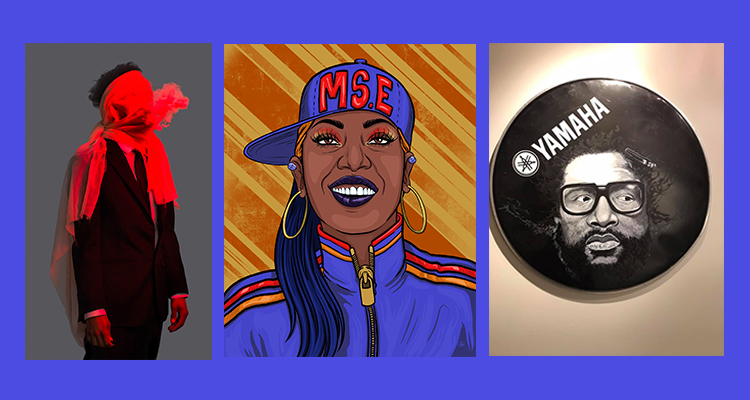Our world is sometimes full of judgment and assumptions. We often forget to look deeper and open our minds to the lives and cultures of others.
“I feel like we live in a snapshot kind of time in society where you show what you can as quick as you can to make a judgment about it,” says Ron Scott Jr., the Cultural Diversity and Community Outreach director at the YWCA in Wheeling.
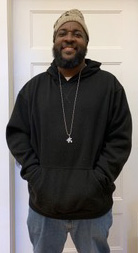
He has a passion for hip hop and sadly explains how some people associate the music with negativity. “They only get little clips about what hip hop and rap is. You don’t get to see any of the artistry that goes behind any of these songs or the time it takes to build the lyrics of a rap song,” he says. “If you’re not of the culture, and you don’t listen to it, the little things the media and the news show you [don’t] seem creative at all.”
These people are not seeing hip hop as a culture and how it was born.
The Birth of Hip Hop
Imagine 1970 in The Bronx, New York — changing demographics, crime, a struggling economy and major construction throughout the neighborhoods. According to WNYC News, South Bronx, specifically, underwent a period of destruction because of arson. This era is known as “The Bronx is Burning,” a common phrase used during the time. It was a poverty-stricken place that did not have much hope for improvement.
Hard times called for distraction within the communities. A place that had nothing soon turned into the birthplace of hip hop and the central area for this culture. Music has been a positive outlet for people through many hardships. With the exploration of music all around the world, it has morphed into multiple genres, styles and cultures.
Hip hop was first heard at parties in The Bronx as an escape from a violent, gang culture that was prominent in the area. DJs and MCs are the results of the formation, as they controlled the music and spoke over the rhythm.
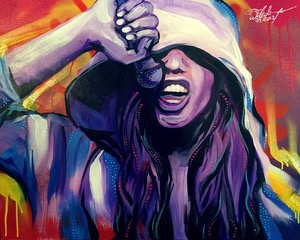
Clive Campbell, also known as DJ Kool Herc, began to play funk records focusing on the musical breakdown in the song and continued to repeat these favored sections, which lead to more dancing in the crowds and more speaking from the MCs. Eventually, these DJ’s inserted rhyme into the rhythmic speaking, and rap was created. Herc is now considered the “Father of Hip Hop.”
Over the years, hip hop has become more accepted and recognized throughout the music industry. Soon, rap was incorporated into pop, R&B and soul music. Even though hip hop is now a massive industry, it is still most commonly accepted in larger cities with more diversity.
Hip Hop in the Valley
“The Ohio Valley hip hop scene is pretty rich,” says Ron Scott Jr. who is working to create more acceptance of the hip hop culture in our city. “I think the hip hop scene in the Ohio Valley depends on itself. These artists record albums in their bedrooms and basements, and there may be one venue in the whole valley that will let them perform” he says.
Scott has been involved with hip hop for years. “I was involved with a group called The Movement (304). We had a hip hop-based podcast that we did for a while,” he said. One of the events he is known for in Wheeling is the Ohio Valley Hip Hop Awards, where he gave locals a chance to shine with their artistry.
Scott believes that this genre could flourish in our city, as there are so many young, talented musicians who are eager to express their art. Unfortunately, there is hesitancy that comes along with hip hop. “We have to get these venue owners to take a chance on them. They really have to remove the misconceptions they might have of violence and misogyny, which is an unwelcome part of the culture, but it’s there,” Scott explains. “If you have any interest or investment in the genre at all, you should want to give them an opportunity to grow.
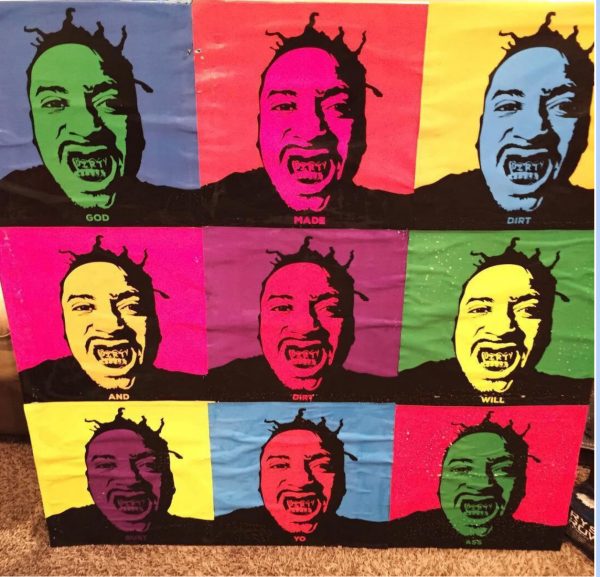
Blank Slate
Scott is enthusiastic about the many possibilities for growth in Wheeling. “It’s like a blank slate,” he says, especially when it comes to music. With an expanding number of venues in the area, it is all about the openness of the community and spreading the word about special events. Scott believes that if Wheeling can begin “building this brand” more people will want to stay. It’s important to reach out to the younger crowd and present a positive atmosphere in the city providing this group with different cultures and activities. The expression of hip hop is just one way to broaden Wheeling’s culture and get more people involved.
Over the years, Scott has held events and worked to showcase the different cultures that sometimes go unnoticed in our community. He has focused on hip hop, Comicon, cross culture in foster care or adoption, and he says, “My plan, of course, is always to find the next culture to highlight.”
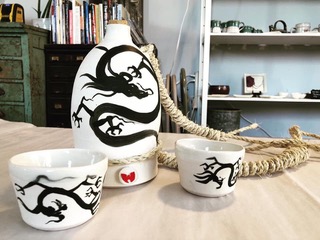
A Night of Elegance
On Friday, Feb. 1, Wheeling Heritage will hold an event all about hip hop as a culture, rather than just a genre of music. Hip Hop: A Black-Tie Affair will take place from 5-8 p.m. at the Artisan Center, 1400 Main St., Wheeling.
“Elegance and that sort of thing has never been associated with hip hop, so that’s why I made it a black-tie affair — because I wanted people to dress up and have a night out,” says Scott.
Along with showing people that hip hop is a culture, Scott also wants to display hip hop’s beauty and artistry. However, he does not want the “Black-Tie Affair” title to scare anyone away. “If you only have shorts and a T-shirt, just come and experience it. But if you have something to dress up in, please do,” he says.
The point is to represent the culture in a positive light.
The event is divided into three sections. Displayed across the third floor will be art based in or inspired by hip hop. Graffiti art has been a large part of the culture since the development of the music. All of the art is for sale, and some of the proceeds go to the artists, YWCA and Wheeling Heritage. There will also be a screen playing acapella rap verses by local artists that will be on a loop during the event. Lastly, DJ Ron Stealth will be spinning old samples and breakbeats showing how they have been used in the past. The artwork will be on display through Friday, Feb. 15.
Scott looks forward to the growth of hip hop in the area and is eager to spread some knowledge about the music he has been dedicated to for years.
“I wanted there to be a way to celebrate it for the culture and the art that it is.”


